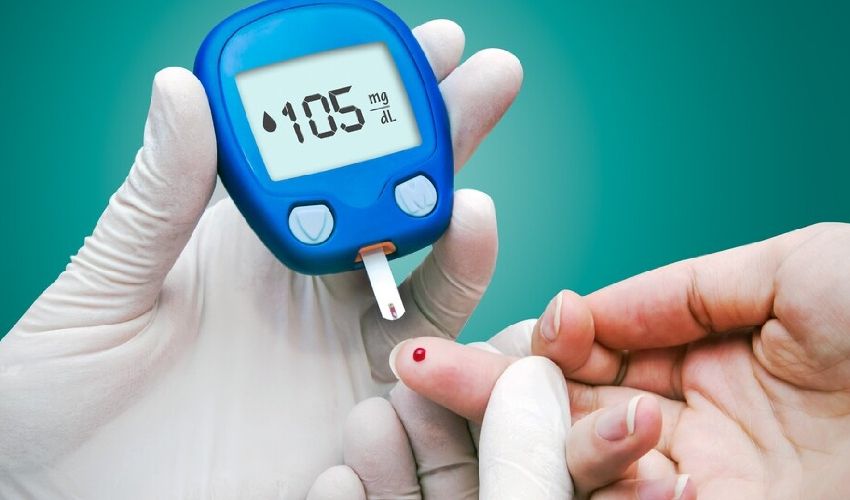Dietary requirements specific for Ramadan

Research shows fasting offers health benefits like weight loss, blood sugar control, reduced blood pressure and cholesterol management
During the holy month of Ramadan, typical eating habits undergo significant changes, necessitating individuals with chronic illnesses to be mindful of the specific dietary requirements.
Numerous research studies indicate that fasting can yield various health advantages, such as weight reduction, blood sugar regulation, lowered blood pressure and cholesterol management.
Individuals with chronic ailments may encounter complications while fasting if they neglect to take their prescribed medications, in addition to facing potential malnutrition and deficiencies in essential nutrients like vitamins, minerals and calcium.
Hence, it is crucial for those intending to fast, particularly individuals with conditions like heart disease, diabetes, hypertension and renal insufficiency, to stick to appropriate medical guidance as advised by experts.
Following are some expert recommendations for individuals with certain chronic illnesses.
Cardiac Patients
Patients with heart conditions should carefully manage their dietary intake during Ramadan for a healthy fasting experience. While stable cardiac patients can benefit from fasting, those with decompensated heart failure or high diuretic needs should avoid fasting, especially in hot weather. Individuals recovering from recent heart events or surgeries should seek personalized medical advice before fasting.
Monitoring salt intake is crucial during Ramadan to avoid increased blood pressure and thirst from high-salt Iftar foods. Diuretics should be used cautiously, with evening administration recommended in hot climates. Weight fluctuations during Ramadan are temporary, emphasizing the need for consistent lifestyle changes for lasting weight management.
Incorporating fiber-rich foods like lentils, vegetables, whole grains and fruits into Suhoor and Iftar meals can aid in preventing constipation, regulating blood sugar and cholesterol levels, and promoting satiety.
Prioritize homemade, hygienically prepared meals and opt for lower-fat choices over saturated and trans fats, favoring heart-healthy fats from sources like fish, nuts, seeds and olive oil.
Maintaining adequate hydration is vital to prevent dehydration, headaches, low blood pressure and constipation during fasting. Choose healthier cooking methods like baking, grilling or light sauteing with minimal oil instead of deep frying or excessive ghee use. Incorporating light exercise, such as regular Tarawih prayers, complements dietary strategies for heart health during Ramadan.

Diabetic Patients
During Ramadan, diabetics and pre-diabetics face dietary challenges due to significant changes in eating patterns. Instead of having multiple meals, they must adjust to fewer meals within the fasting window.
Seeking advice from healthcare professionals before fasting is vital for safety.
Type 1 diabetics with a history of hypoglycemia are at increased risk, while Type 2 diabetics may have milder symptoms. Maintaining good blood sugar levels is crucial, emphasizing complex carbohydrates at Suhoor and avoiding sugary and fatty foods at Iftar.
Delaying Suhoor and focusing on complex carbohydrates like whole grains, vegetables, oats, brown rice and fruits with skin is recommended.
These carbohydrates provide sustained energy throughout the fasting period.
Avoid sugary drinks and high-fat foods at Iftar.
Start with small portions of quick-absorbing simple carbohydrates like sugar-free drinks, dates, or milk to prevent dehydration.
For Iftar, choose whole wheat chapatis, vegetables, and a meat dish. Salads can increase fiber intake, and options like chickpeas and haleem are beneficial for diabetics due to their fiber content.
Avoid deep-fried foods and drink milk or fruit before bedtime to maintain stable blood sugar levels until Suhoor.
We are regularly monitoring blood sugar levels, avoiding overeating and staying active after meals to aid in managing diabetes effectively during Ramadan.

Hypertension
Consulting with a healthcare professional prior to fasting is essential for discussing effective strategies to manage lifestyle changes and medications, ensuring safe fasting while controlling hypertension symptoms.
While stable hypertension patients can fast safely, those with uncontrolled hypertension should wait until their blood pressure is managed.
Staying well-hydrated is crucial during fasting, especially for individuals with high blood pressure. Aim to consume 2-3 liters of water daily, avoiding sugary and caffeinated drinks that can impact blood sugar levels and contribute to dehydration.
Similar to managing diabetes, careful planning of meals and timing during fasting, like Ramadan, is vital for maintaining overall health.
Collaborate with your healthcare professional to create a balanced eating plan that limits high-fat foods, includes ample fruits and vegetables, and incorporates foods that support blood pressure regulation.
Lifestyle adjustments such as quitting smoking and increasing physical activity may also be recommended to enhance hypertension management.
Individuals with hypertension should be attentive to symptoms like headaches and dizziness, attend regular check-ups, and work closely with their healthcare team to effectively manage their condition.
Source: Newsroom



